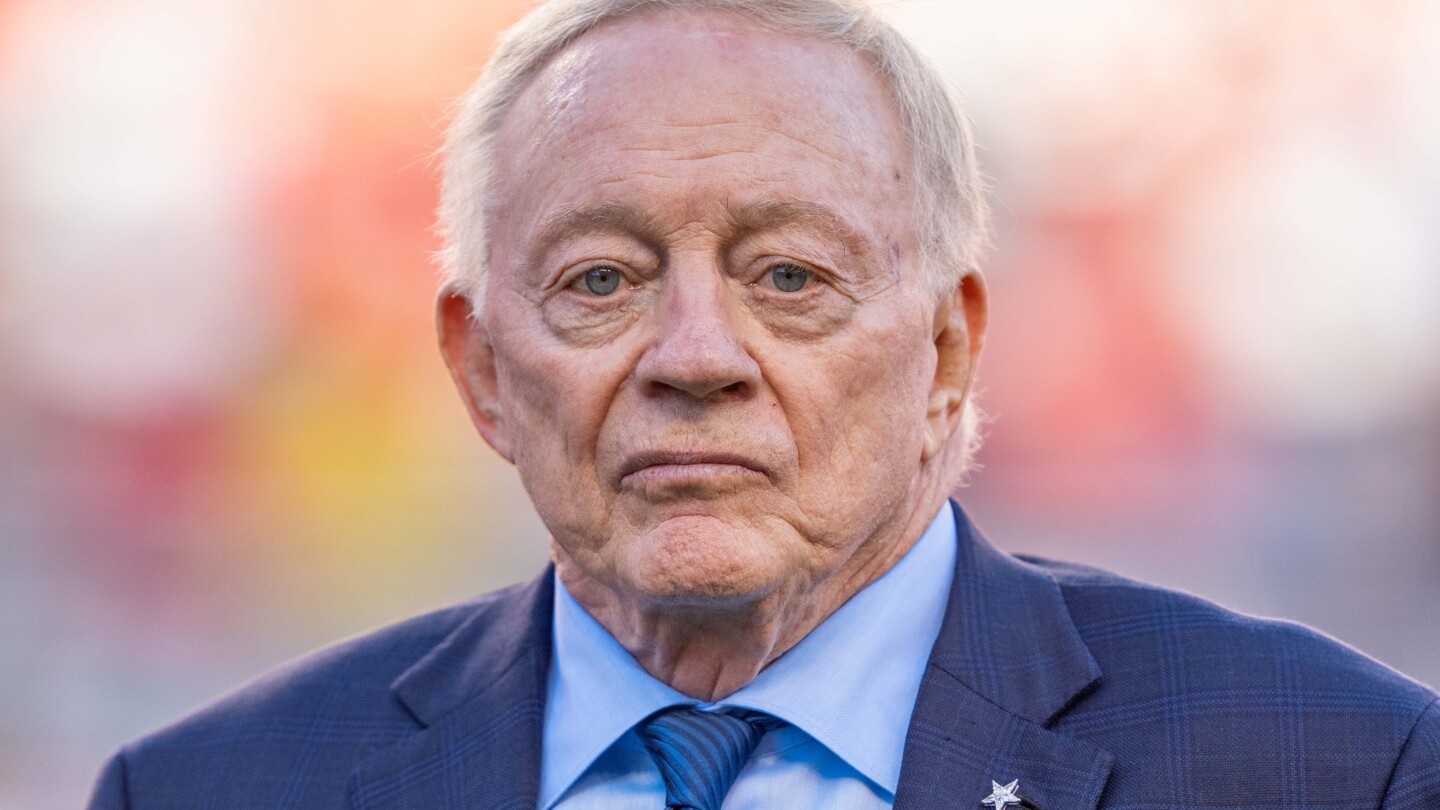The first (and really only) rule of poker face is to not say out loud that you’re wearing one.
Cowboys owner and G.M. Jerry Jones danced on and over that line during his Tuesday appearance on 105.3 The Fan in Dallas on Tuesday, when he went beyond simply saying, in essence, “we’re fine with the team we have” and making it clear that he’s saying he’s fine with the team he has because he doesn’t want to make the first move on a potential trade and lose leverage in any ensuing talks.
“It would have to come our way,” Jones said regarding possible deadline deals. “I don’t want to preclude it in any way. But it always does. You have a lot of machinations that you’re working with every day. I do. But the initiation of an opportunity to make a trade at this time that would help us principally has to start over on the other end. And so that’s not showing a lack of aggressiveness, that’s just where it starts. I like where we are with our personnel today. And so I’m not thinking in any way that we need to upgrade our roster.”
The better approach, in our view, would have been to simply say, “I like where we are with our personnel today. And so I’m not thinking in any way that we need to upgrade our roster.”
Jones was asked to elaborate on the difference between making calls about possible trades and waiting for them.
“Well, again, you’re laying in wait, so to speak,” Jones said. “I have areas on the team that we could, if certain circumstances happen, that you might improve. So you don’t know that your best chance to get it done is when it comes by you and you grab it. So that’s just generally speaking. To go out and push it, the odds of getting it done at the price or the trade conditions or just the price that you would expect is dreaming.”
Again, Jones is right. Again, Jones didn’t need to say it out loud.
In any negotiation regarding a deal that doesn’t have to happen, the party that makes the first move puts itself in a position of weakness. That’s a given. But there’s a way to work the phones that makes it come off not as desperation but curiosity. Jones could call every team with a very broad explanation that he’s just doing his due diligence as to players who might be available on another team’s roster, and that he’s just doing his due diligence as to Cowboys players in whom another team might be interested.
“We don’t want to leave any stone unturned,” Jones could say. “We don’t want you or us to miss any opportunities to do a deal that could help both of us.”
By turning over every stone, and making it clear that he’s doing so, Jones potentially primes the pump for another G.M. to blurt out the name of a player Jones might want. At that point, Jones could and should remain coy. “Well, we got plenty more calls to make,” he could say. “We’ll get back to you if we decide we want to talk about any of those guys.”
There’s also a way to express interest about an available player without blowing the negotiation. If a team identifies, say, five players it could be willing to trade, Jones could ask what the team is thinking about getting for each of them, not just the one he’d want. (Or, perhaps, Jones could start by asking about a player he’s not interested in, and play out the dance before pivoting to the one he wants as a potential fallback.)
Regardless, there’s a way to start talks without sacrificing leverage. Every deal begins with one side making the call. This does not mean that the side that makes the call always loses. Win-win trades can happen. They do happen.
It’s better in the end to risk not getting a win-win deal than to not getting a deal at all. If the other team is motivated to trade a given player, that team eventually will get reasonable, regardless of who makes the first move. If no one makes the first move, the Cowboys could miss out entirely on a player who might have made the difference in a key moment in January.
